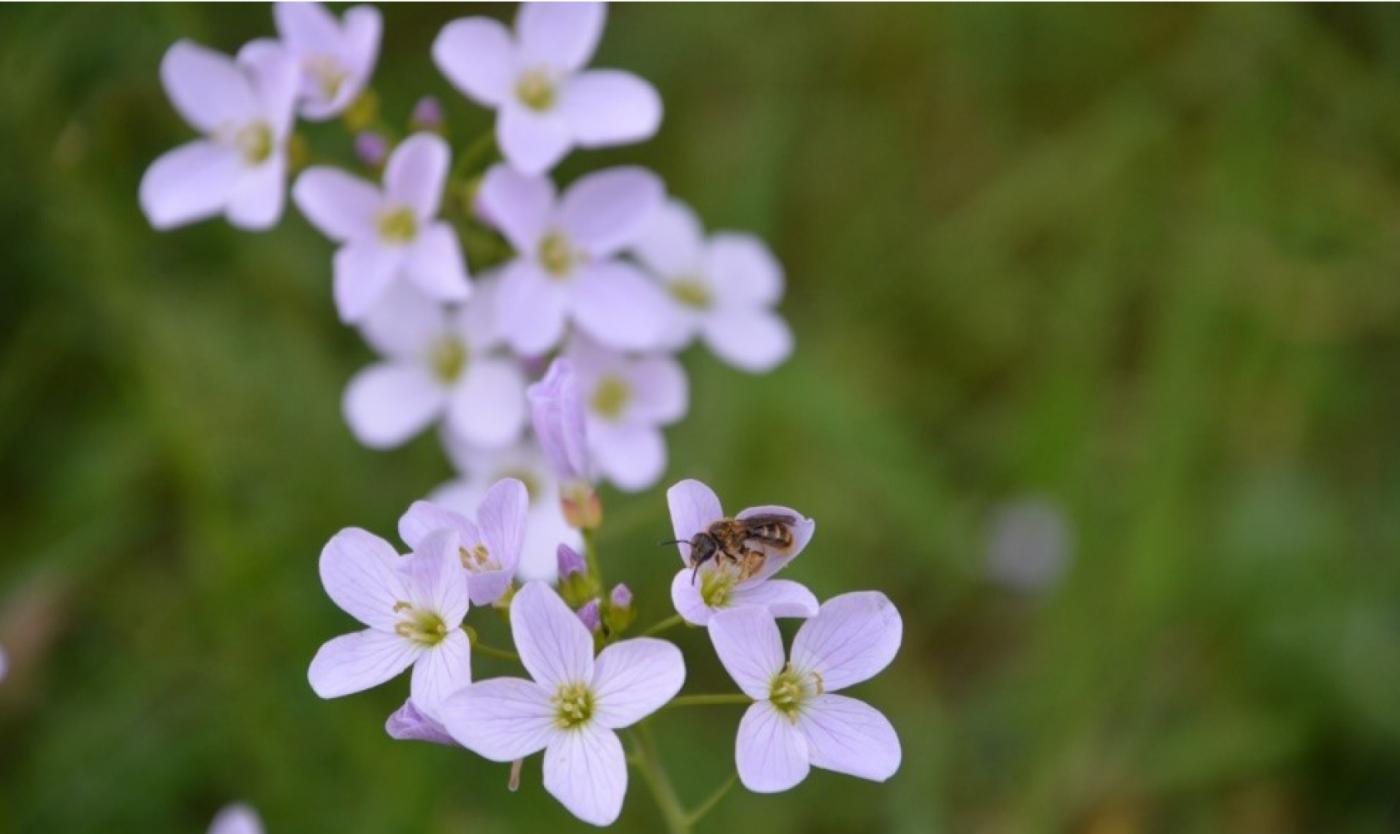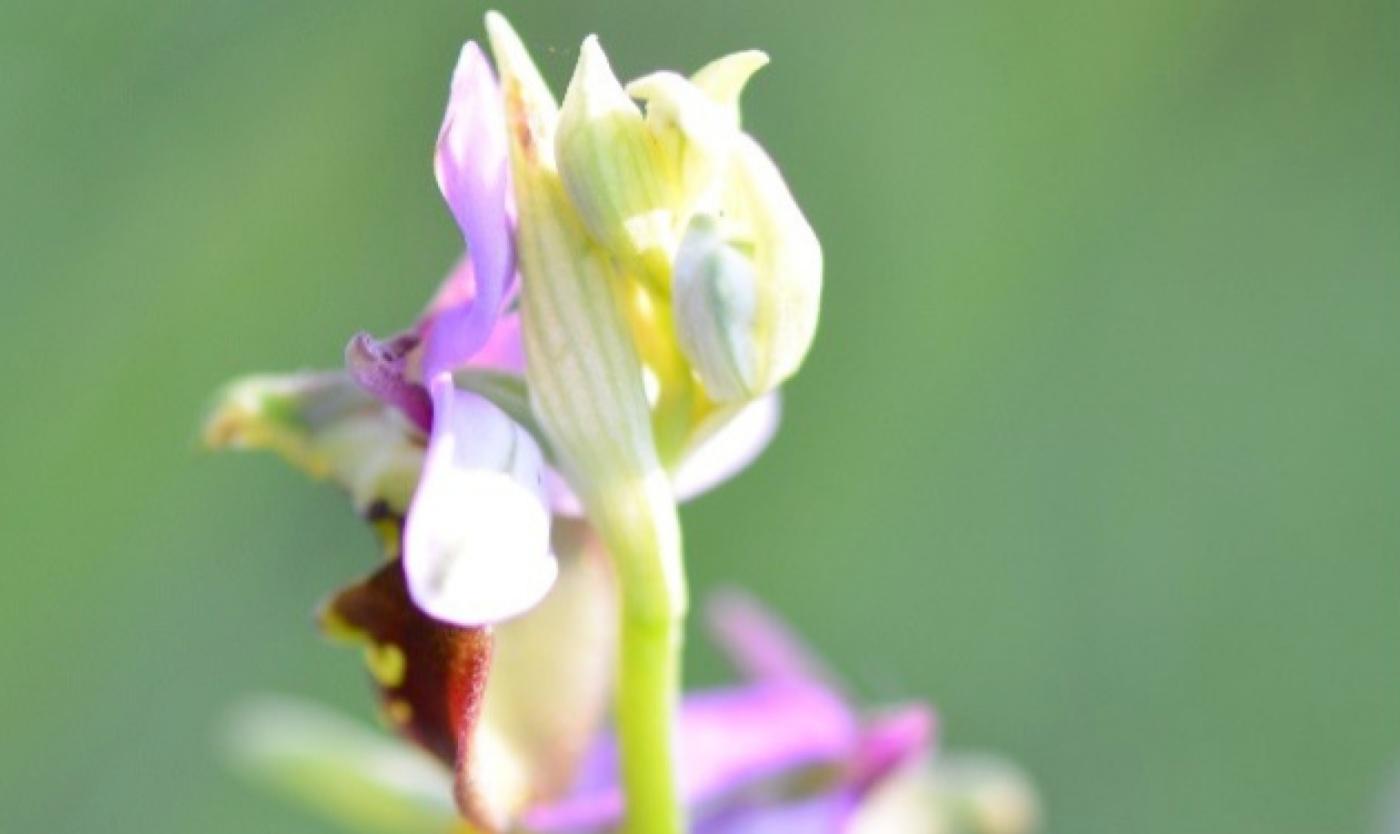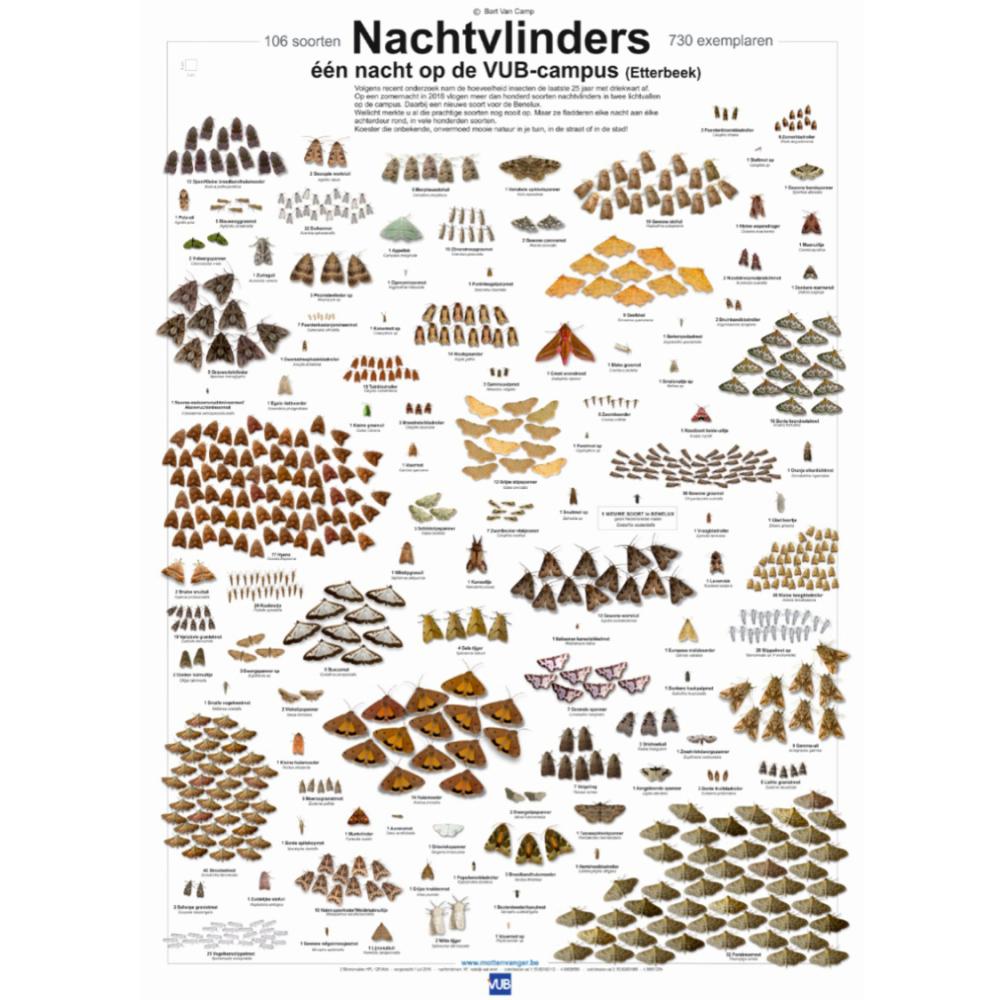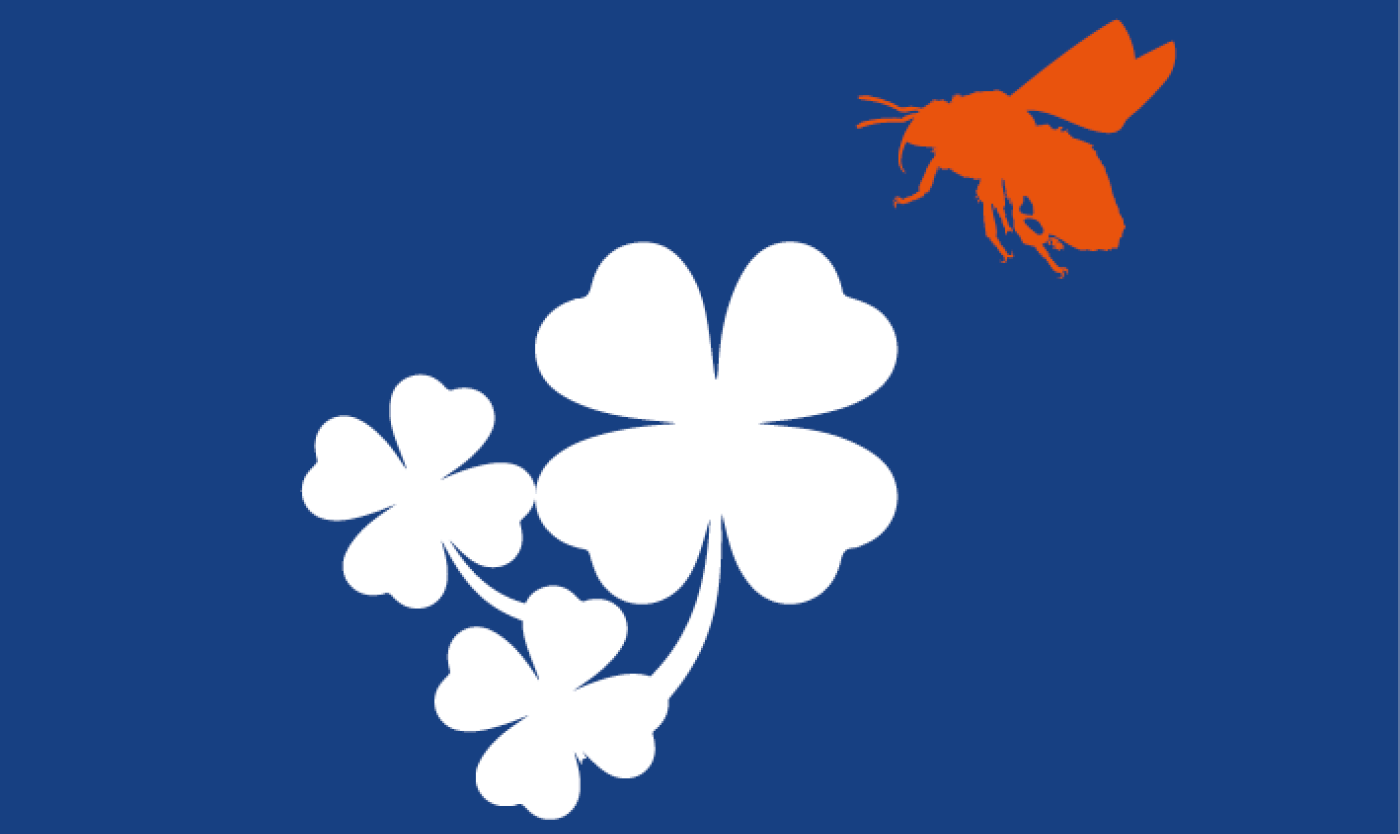Why the grass needn't always be greener
A traditional lawn is not at all favourable to insects. It usually consists of one dominant type of grass, English ryegrass (Lolium perenne) or smooth meadow-grass (Poa pratensis), supplemented with red fescue (Festuca rubra). These are species that thrive on nutrient-rich soil, but are not a good source of nectar or pollen. In terms of biodiversity, such grasslands are actually no more than green deserts. The grass species that can survive there, such as English ryegrass, are the only ones that like strong fertilisation and can endure the frequent mowing that goes with a classic, neatly trimmed lawn.
Nutrient-poor lawns ensure rich biodiversity
Most flowering herbs fail to produce flowers and seeds when mowed frequently and as a result, they do not survive. They like nutrient-poor conditions. We like to create such nutrient-poor lawns on campus, for rich biodiversity.

Solitary bee on a cuckoo flower. Photo by Bram Vanschoenwinkel.
More biodiversity
To boost biodiversity, we should therefore refrain from fertilising. We don't mow too often anymore (maximum twice a year). We adjust our mowing management by removing mowed grass so that the fertilisers present in the soil are reduced. This gives more plants a chance to produce flowers and seeds. A disadvantage of this approach is that the grass is less dense and green. After a while, however, various additional plants appear, such as clover and daisies. Their nectar and pollen are gratefully used by a variety of flower-visiting insects, such as cheerful bumblebees and bees.
If you keep this up long enough, you get a lawn consisting of more than 70% flowering herbs, like the clearing behind the Braem building at VUB. Even orchids can thrive on such meagre lawns! We’re committed to taking good care of ours, because nutrient-poor lawns have become extremely rare.


Guess how many!
In 2018, moth expert Bart Van Camp reported more than 106 species of moth on the VUB campus in a single night. Moths are important because they pollinate plants and are a source of food for other animals, such as bats.
(Moths counted in a single night at VUB. Image by Bart Van Camp.)
